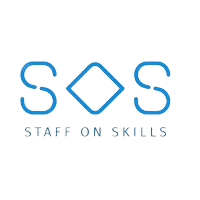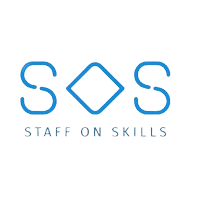- info@staffonskills.co.uk
- Liverpool
Establishing a Strong Foundation: Policy and Procedures for NGO Startups in the UK

NGO startups in the UK face a unique set of challenges, from navigating complex regulatory frameworks to ensuring operational efficiency. In this blog, we delve into the importance of establishing robust policy and procedures for NGO startups, exploring the key considerations, best practices, and technologies that can support their growth and success.
The Importance of Policy and Procedures for NGO Startups
NGO startups in the UK operate in a dynamic environment, where compliance with regulations, laws, and industry standards is crucial. Effective policy and procedures help ensure that these organizations are well-equipped to manage risk, maintain transparency, and deliver high-quality services to their stakeholders.
Key Considerations for NGO Startups
Regulatory Compliance: NGO startups must comply with UK regulations, such as the Companies Act 2006, the Charities Act 2011, and the General Data Protection Regulation (GDPR).
Governance and Management: Establishing a clear governance structure and management framework is essential for effective decision-making and accountability.
Risk Management: Identifying and mitigating risks is critical for NGO startups, particularly in areas such as financial management, human resources, and data protection.
Operational Efficiency: Implementing efficient operational procedures can help NGO startups streamline their activities, reduce costs, and improve service delivery.
Best Practices for Policy and Procedures
Develop a Comprehensive Policy Framework: Establish a set of policies that cover key areas such as governance, risk management, and data protection.
Implement Standard Operating Procedures (SOPs): Develop SOPs that outline the steps to be taken in specific situations, ensuring consistency and efficiency in operations.
Conduct Regular Reviews and Updates: Regularly review and update policies and procedures to ensure they remain relevant and effective.
Train Staff and Volunteers: Provide training to staff and volunteers on policies and procedures to ensure they are aware of their roles and responsibilities.
Technologies Supporting Policy and Procedures
Document Management Systems: Implement document management systems to store and manage policies, procedures, and other critical documents.
Risk Management Software: Utilize risk management software to identify, assess, and mitigate risks.
Compliance Management Tools: Leverage compliance management tools to ensure compliance with regulations and laws.
Communication Platforms: Utilize communication platforms to facilitate collaboration, information sharing, and decision-making.
Conclusion
Establishing robust policy and procedures is crucial for NGO startups in the UK. By understanding the key considerations, best practices, and technologies that support policy and procedures, NGO startups can ensure they are well-equipped to navigate the complex regulatory landscape and deliver high-quality services to their stakeholders.
References
Companies Act 2006
Charities Act 2011
General Data Protection Regulation (GDPR)
UK Charity Commission
National Council for Voluntary Organisations (NCVO)



